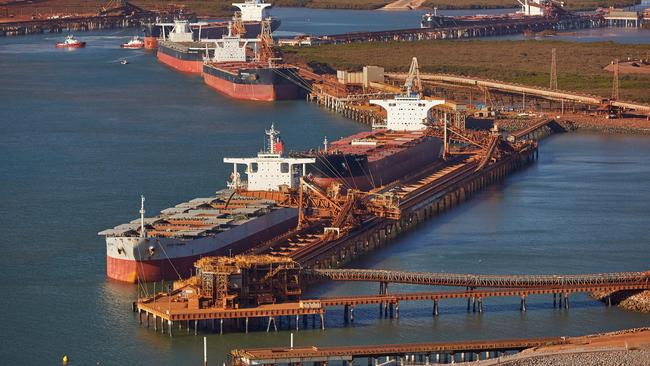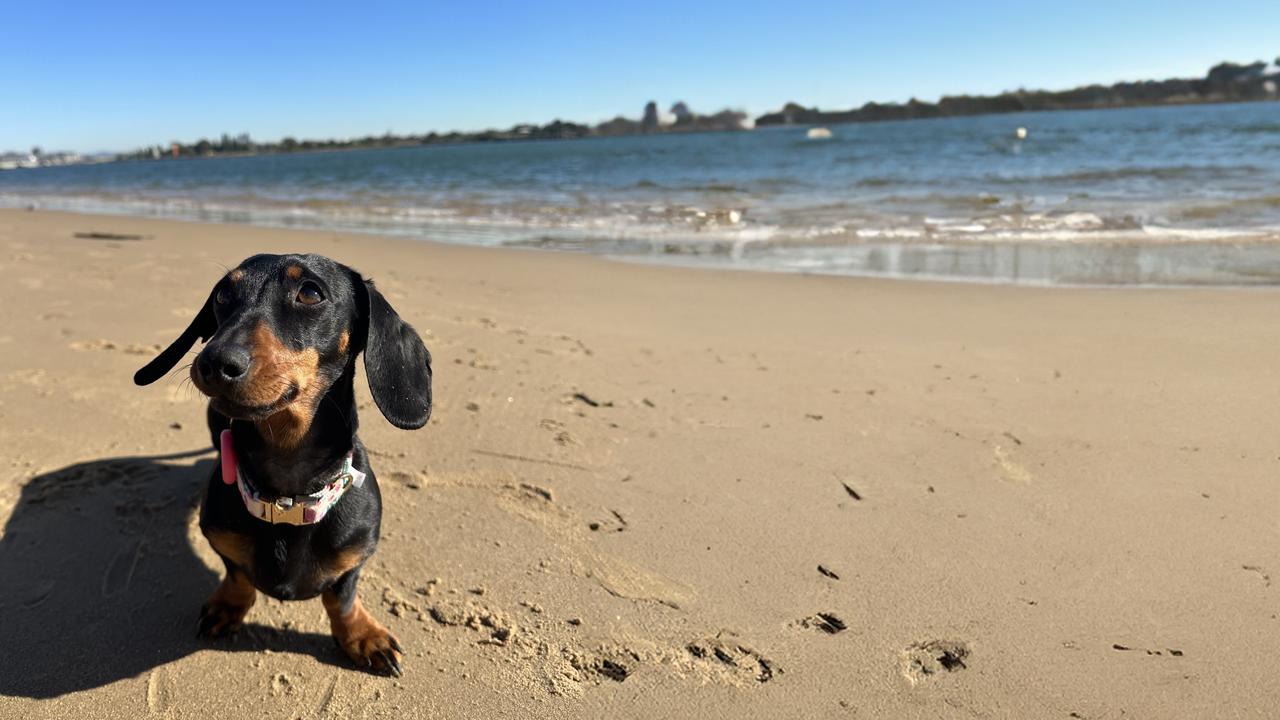Bush Summit: Internet has made WA’s Port Hedland seem a little closer to the rest of the country
It’s one of the world’s most remote towns, but Port Hedland in the Pilbara region of Western Australia is booming with a diverse population and a varied range of businesses.

You can now listen to The Australian's articles. Give us your feedback.
It’s one of the world’s most remote towns, but Port Hedland in the Pilbara region of Western Australia is booming.
From candle makers to mining companies, the town’s businesses are there thanks to the gigantic deepwater port within the natural harbour on the coastline.
Judged by annual throughput, it is Australia’s largest export port and is the biggest bulk mineral export port in the world.
Iron ore from the Pilbara forms the backbone of the economy, which is supported by the cattle industry.
Port Hedland Chamber of Commerce general manager Tina Scott represents 430 businesses.
“It’s anything from your stay-at-home mum that makes candles or does massages on the weekend, right up to your multinationals and some of the biggest companies in the world, like mining companies and banks,” she said. “We are the biggest bulk shipping terminal in the world, the economic hub of the country, and a lot of people just don’t realise that.”
Port Hedland has a transient population of 16,000, which can swell significantly with fly-in, fly-out workers. More than 18 per cent of residents are Indigenous and a third of the population was born overseas. “It’s a very diverse community,” Ms Scott said. “It is like a real mixing pot, because people come from all over the world to work in Port Hedland and ultimately the Pilbara.”
Ms Scott said the town’s businesses, and the community’s residents, had matured in recent years since the National Broadband Network connected the Pilbara to the rest of the country and made the town seem a little less remote. “We are all about liveability,” she said. “You look at our health services with telehealth and so much done online. It is an absolutely essential service to have in such a remote area for business and personal use.”
Port Hedland is also home to one of nine business fibre zones in the state that have a super-fast connection. Sam Dimarco, the NBN’s general manager of regional and remote stakeholder relations, said the national gross domestic product uplift from the NBN since 2012 was 16 times greater in remote areas. It has contributed $15.4bn to WA’s gross state product, of which $5.1bn was in regional areas, supporting 3800 new regional jobs and an additional 1900 regional businesses.
“What that is suggesting is that those that have been absent or excluded to high-speed services, now they’ve got that, (they) have really taken advantage,” he said. “For regional areas to be using more, they’re embracing digital practices in their operations.”
Mr Dimarco said an internet presence was as key to a business in rural areas as the cities.
“If I’m in Port Hedland, I can engage with someone in the centre of Perth who’s remote to me, but I can still give them that level of service,” he said.




To join the conversation, please log in. Don't have an account? Register
Join the conversation, you are commenting as Logout